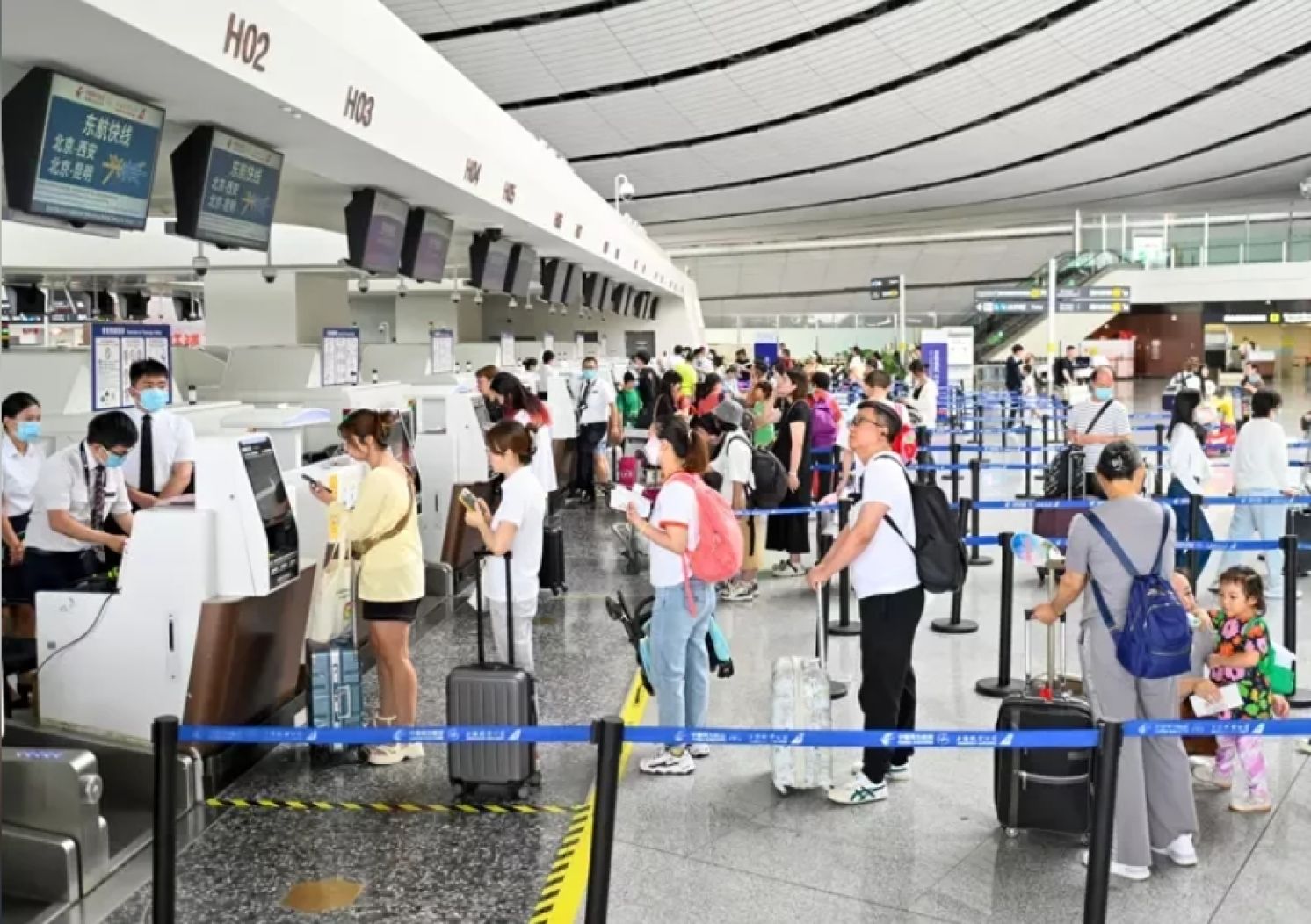
First Step for DPP-Communist Party Dialogue
Want Daily Editorial, April 25, 2024
Less than a month before the presidential inauguration on May 20, President-elect William Lai expressed his stance during the Democratic Progressive Party's (DPP) Central Standing Committee meeting, urging both sides of the Taiwan Strait to responsibly engage in constructive dialogue. This marks the first time since his election victory that he has put forward a systematic concept regarding cross-strait policy. In contrast to the Mainland Affairs Council and some DPP lawmakers who, after the Ma-Xi meeting, reflexively used frivolous and mocking words to disparage it, Mr. Lai and his core team attach more importance to Chinese President Xi Jinping's strategic patience and the flexibility given to different opinions in Taiwan.
Lifting current restrictions on group tourists is the first step in displaying goodwill. Dialogue between the two sides is not achievable overnight, but Mr. Lai's willingness to propose it demonstrates that the DPP has begun to acknowledge the complexity and danger of the cross-strait issue, recognizing the necessity to restore communication and dialogue. However, since official cross-strait negotiations authorized by public authorities may be difficult to resume in the short term, other communication channels, including party-to-party dialogue, can help clarify positions, exchange bottom lines, build mutual trust, and pragmatically resolve issues, playing an indispensable complementary role. Mr. Lai's willingness to pragmatically address cross-strait issues and call for constructive dialogue between the people on both sides suggests that efforts by the opposition Kuomintang (KMT) to promote cross-strait exchanges should not be met with a sour grapes mentality, nor viewed as a means for the mainland to divide and undermine Taiwan. Given Legislator Fu Kun-chi and his KMT colleagues’ visit to the mainland, China may use the opportunity to open up cross-strait tourism. At that time, the DPP administration should set aside partisan prejudices and cooperate to restore the mechanism for mainland tourists to visit Taiwan, allowing goodwill and interpersonal connections between people to become the most effective bulwark for maintaining peace in the Taiwan Strait.
Mr. Lai's proposal to "value and cherish each other's goodwill" could potentially become a new mode of interaction between the authorities on both sides of the Strait. While the DPP is unwilling to acknowledge the "1992 Consensus," and cross-strait negotiations may be difficult to restart in the short term, if both sides can unilaterally demonstrate friendly gestures within their respective spheres of power and gain recognition from the other side, followed by corresponding goodwill measures in response, this "action-to-action" approach conducted without sitting at the same table could forge a new path for the normalization of cross-strait relations. As the DPP transitions from old to new governance, how it responds to positive measures taken by the mainland in areas such as tourism and other people exchanges could serve as a litmus test for Mr. Lai's sincerity in managing cross-strait relations.
Mr. Lai remarked on April 24 within the DPP, mentioning "hope for understanding, tolerance, and respect for each other's positions" indirectly reflecting the difficulty for the DPP and the mainland to reach a consensus on some fundamental issues. However, both sides should still express their positions while leaving room for listening, maintaining a mindset of seeking understanding and convergence. If Mr. Lai's sentiment is genuine, then when Beijing released various layers and multiple meanings of the concepts "One China," "belonging to the same country," "belonging to the same nation," "both are Chinese descendants, both are descendants of Yan and Huang emperors," and "we are all one family" during the second Ma-Xi meeting, the DPP and Mr. Lai should ask themselves: among these concepts, which one is the DPP willing to understand, tolerate, and engage in dialogue with? Or can the DPP propose its own solution that not only reflects its various principles but also demonstrates the ability to respect and understand the mainland's position, laying the first brick on the road to dialogue between the people on both sides of the Taiwan Strait?
Mr. Lai's proposal for dialogue between the DPP and the Communist Party is by no means a spontaneous act. It must have received prior tacit approval or even encouragement from the United States. Despite numerous disagreements between the United States and mainland China over the Ukraine war, trade with Russia, decoupling in technology, and other issues, neither side wants turmoil or conflict in the Taiwan Strait, as it would thwart their common goal of preventing relations between China and the United States from deteriorating into a dangerous confrontation. However, recent actions in the U.S. Congress, such as military aid bills, indicate that, under the shadow of the lessons from the war in Ukraine, the United States is accelerating its activities in selling arms to Taiwan and training personnel, which will only increase rather than decrease. Given Secretary-General of the National Security Council Wellington Koo’s consistent cooperation with the United States, his assumption of leadership at the Ministry of National Defense aligns even more with this tacit agreement and trend.
Taiwan's defense and security balance is likely to tilt significantly towards the United States, and the cooperative relationship in sensitive areas between Taiwan and the United States will reach a new level since the severance of diplomatic relations in 1979. The incoming Lai administration also needs to repair its relationship with Beijing, accumulate mutual trust, and prevent Taiwan's security balance from completely tilting. By not relying on the United States to handle negotiations with the mainland, Taiwan can safeguard its autonomy and control its own destiny.
The KMT should also actively embrace Mr. Lai-proposal for dialogue between the DPP and the Communist Party, and even share its experiences in dealing with the mainland. In doing so, each major political party in Taiwan can gradually establish its own interactions with the mainland, freeing cross-strait exchanges from the mess of labeling and accusations. This will provide another channel for addressing various practical issues involving the mainland, contributing to the healthy and orderly development of cross-strait relations.
From: https://www.chinatimes.com/opinion/20240425004835-262102